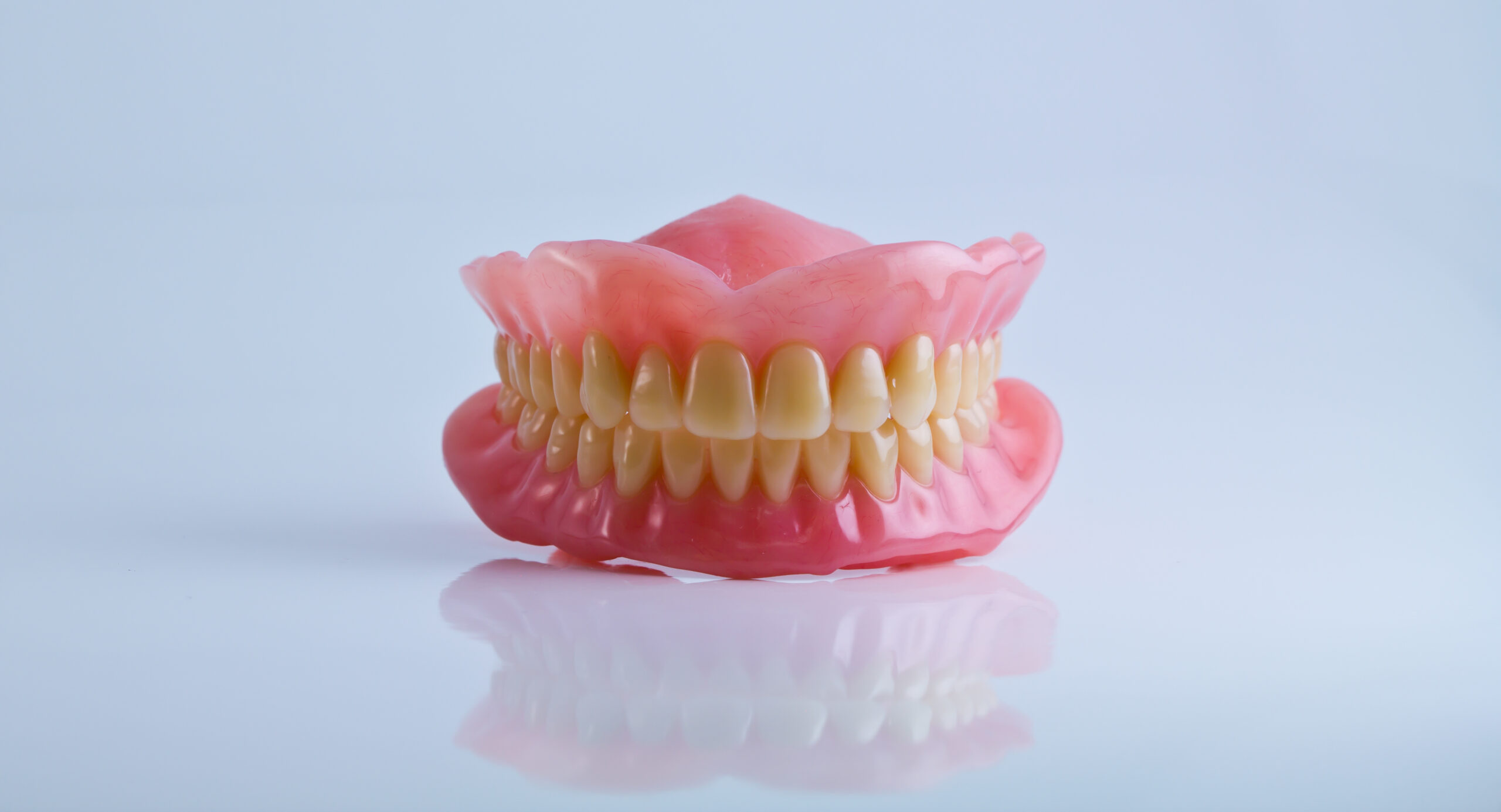Dr. GK Ananda
Why dentures
the best replacement for missing teeth

Fun Facts
What are Dentures?
Dentures serve as removable replacements for missing teeth, offering the flexibility of taking them out and reinserting them into your mouth. While adjusting to dentures may require a period of adaptation, they have come a long way in terms of comfort and natural appearance.
There are primarily two types of dentures: full and partial. Your dentist will assist you in determining the most suitable denture type based on whether you need to replace some or all of your teeth and considering the associated costs.
How do Dentures Work?
Full dentures feature an acrylic base that matches the color of your gums. The upper denture’s base extends over the palate (the roof of your mouth), while the lower denture’s base is designed in a horseshoe shape to provide space for your tongue.
These dentures are individually crafted in a dental laboratory, using impressions obtained from your mouth. Your dentist will assess your needs and preferences to determine the most suitable among the three types of dentures described below.
Types of Dentures
- Conventional Full Denture
A conventional full denture is placed in your mouth after any remaining teeth are removed and tissues have healed. Healing may take several months, during which time you are without teeth. - Immediate Full Denture
An immediate full denture is inserted immediately after the remaining teeth are removed. (Your dentist takes measurements and makes models of your jaw during a prior visit.) While immediate dentures offer the benefit of never having to be without your teeth, they must be relined several months after being inserted. The reason is that the bone supporting the teeth reshapes as it heals, causing the denture to become loose. - Partial Denture
A partial denture rests on a metal framework that attaches to your natural teeth. Sometimes crowns are placed on some of your natural teeth and serve as anchors for the denture. Partial dentures offer a removable alternative to bridges.

How Long Before I Get Used to My Dentures?
When you first get new dentures, you might experience some initial discomfort or awkwardness for several weeks or even months. Eating and speaking with dentures may require some practice. It’s quite common to feel a bit of bulkiness or looseness as your cheek and tongue muscles adapt to holding the dentures securely. Additionally, you might notice increased saliva flow, a sensation of limited tongue space, or minor irritation or soreness. If you encounter persistent irritation, it’s advisable to schedule a visit with your dentist for assistance.
How Long do Dentures Last?
As time goes by, your dentures will undergo normal wear and may require relining, remaking, or rebasing. Rebasing entails creating a new base while retaining the existing denture teeth. Additionally, as you age, natural changes in your mouth can cause your dentures to loosen, making chewing uncomfortable and potentially leading to gum irritation. To ensure the ongoing effectiveness of your dentures, it’s advisable to schedule an annual checkup with your dentist.
Here are some valuable tips for denture care:
1. When handling your dentures, it’s best to stand over a folded towel or a basin of water. Dentures are delicate and can break if accidentally dropped.
2. Avoid letting your dentures dry out. Store them in a denture cleanser soaking solution or plain water when they are not in use. Hot water should never be used as it can distort the shape of the dentures.
3. Regularly brushing your dentures is essential to remove food deposits, plaque, and prevent staining. While an ultrasonic cleaner can be used for denture care, it should not replace the daily brushing routine.
4. Each morning before inserting your dentures, use a soft-bristled brush to gently brush your gums, tongue, and palate. This practice stimulates circulation in your oral tissues and aids in plaque removal.
5. In case your dentures break, chip, crack, or become loose, seek professional dental assistance. Avoid attempting to adjust them yourself, as this may lead to irreparable damage.